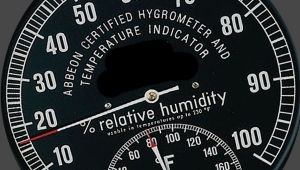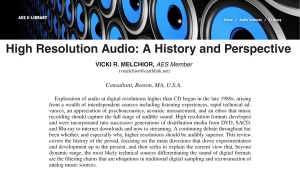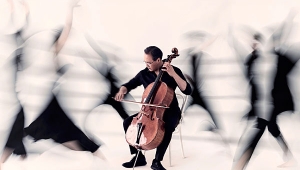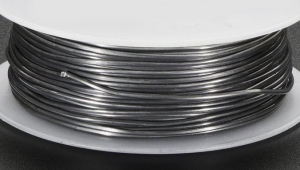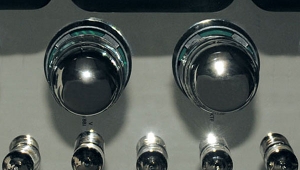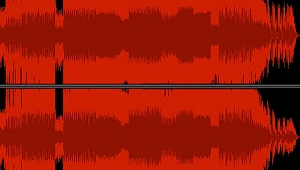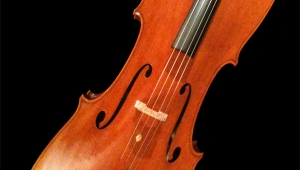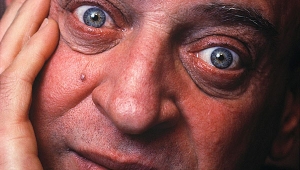| Columns Retired Columns & Blogs |
"Observe the Candle..." Page 2
What's so great about objectivity? It travels. If I were to review some $200 RadioShack speakers and report—subjectively—that they sound exactly like my reference Quad ESL-63s, most objectivists would roll their eyes and turn the page. "Reisch, you may think they sound the same, but you're probably the only one." But suppose I showed that the speakers measure exactly like the Quads in my living room. In that case, they'd probably measure like Quads at your place, too, and they'd probably sound pretty good. Even the staunchest objectivists would be on their way to the strip mall before you could say "Mpingo."
But things are not so cut-and-dried. In the 1950s and '60s, just when those Drew Carey lookalikes were making all those films about progress and the scientific method, some historians and philosophers began to suspect that this crucial distinction between observation and theory is a sham. They decided that the two are not truly separate and independent. Contra Joe Friday, it's impossible to have "just the facts"—observations must always contain beliefs, ideas, and preconceptions of some sort.
How do beliefs and theories get smuggled in with scientific observations? Suppose they didn't. If observations were truly theory-free, then I could have observed that candle without any knowledge at all of heat, combustion, chemical bonds, and so on. Scientifically speaking, I could have been a blank slate. But then my lab book would have read like this: "The candle...
"...is in a room that contains a clock.
"...is cylindrical.
"...has a wick that is bent in two places.
"...is 4.72 feet away from one end of my left shoelace...."
This could have gone on forever. I could have devoted my entire life to the study of that candle, produced a huge and useless jumble of scattered observations, and still have remained in the dark about the chemistry of burning wax.
Joe Friday faced the same problem. If he was ever going to stop collecting facts and solve the crime, he had to collect useful facts. But how did he know which were useful and which weren't?
That's how theories sneak in. Because any situation contains an unbounded number of facts to observe, detectives and scientists alike must have some idea, hunch, or half-formed hypothesis about which facts might be important and which can be safely ignored. On their own, blank slates make bad detectives and bad scientists. They need theories.
But there's more. In his influential The Structure of Scientific Revolutions, Thomas Kuhn argues that scientists literally see the world differently if they subscribe to different ways of thinking, to different "paradigms." It's not that they see the same phenomena and just interpret them differently—the phenomena themselves are different.
Try this one at home, especially if you live in a rural area: On a clear, cloudless night, imagine being a 14th-century astronomer who has spent his life studying the heavens as a system of nested, crystalline spheres enclosing and slowly rotating around the earth. You'll find that the stars really do look as if they're studded on the inside surface of a huge sphere, especially if you can see them from horizon to horizon. Once you mentally return to the 20th century, however, the sky will suddenly look different. That huge sphere will disappear, and you'll be staring past the stars, into boundless space.
Joni Mitchell made the point in her song "Both Sides Now." Before being raised on robbery, she was evidently raised on a diet of books and stories for little girls. That's why she would look at clouds and see "angel hair" and "ice cream castles" and "feather canyons." She "looked at clouds that way." Maybe she simply needed a rhyme, but the "that way" is revealing. Observations aren't ready-made. What you see depends on how you look and what you believe.
What does this mean for objectivism? If scientific observations are not fully "objective" and independent of theories and ideas, then reviews of audio components are not likely to be fully objective either. The notion that one might review components "with no preconceptions" (as Lee Child put it in "Letters," March 1997, p.16) is a myth. One might even say that there's nothing at the end of the objectivist's rainbow but an empty pot (although rhetoric like that just makes objectivists mad).
- Log in or register to post comments

